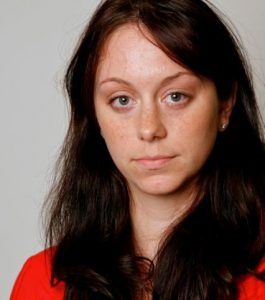Published 10:28 IST, May 4th 2024
College Inc gets Stakeholder 101 crash course
From New York to Los Angeles, universities are grappling with violent clashes over Israel and Gaza amid final exams and commencements.
- Republic Business
- 4 min read

Hard knocks. A degree in Middle East studies would be helpful at colleges these days, but business-school grads are even more valuable. From New York to Los Angeles, universities are grappling with violent clashes over Israel and Gaza amid final exams and commencements. Money is a big part of the protests, which are also jeopardizing a lot more of it in higher education. There’s a corporate blueprint for diffusing activists, but campuses cater to an even wider array of constituents.
In just one of dozens of recent examples, Columbia University students locked themselves into a building this week, hoping to force the Ivy League institution to divest funds invested in Israeli companies. The immediate risk to students has subsided; the one involving university finances has only just begun.
The bigger a business that college becomes the more company-like its framework. There are the customers, who account for big slugs of revenue, in this case students – and their parents – paying upwards of $90,000 a year for tuition, housing, food and books. Employees, including professors, help churn out alumni from the factory floor. Rich and influential donors, meanwhile, write ever-larger checks to fund capital expenditures, R&D and investment. Media mogul Michael Bloomberg, for one, gave $1.8 billion to Johns Hopkins University.
Aggressive disruptions put finances at risk, as any CEO targeted by an activist investor knows. After four students were killed during anti-war demonstrations at Kent State in 1970, enrollment slipped for years. A decade later, one of the university’s deans at the time blamed the tragedy for “attenuated fiscal problems.”
Controversy rattles other backers, too. Late last year, wealthy benefactors including buyout baron Marc Rowan, who runs Apollo Global Management, threatened to stop sending money to the University of Pennsylvania and rallied fellow grads to do the same because of how its president equivocated over how to handle campus protests. Last week, New England Patriots owner Robert Kraft pulled his support from Columbia.
Staff members are also clearly rattled. Columbia Law Professor John Mitts called the protest “mob violence.” Faculty at the University of Texas and University of California Los Angeles, where students are also protesting, have spoken out, too.
Different business models help explain the varied responses. For example, tuition accounted for less than a quarter of Harvard University’s revenue last year. At Columbia, it’s responsible for half. Both are exclusive enough that even if the number of applicants declined, they would still have plenty from which to choose. Not every school can say the same if families start objecting to campus attitudes or oversight and seek degrees elsewhere. Colleges also have long lists of donors, but they depend heavily on the richest among them, who wield outsized clout as a result.
Managing these competing factions is getting harder, just as it has been for companies increasingly trying to satisfy more than just investors. Because of disputes over LGBTQ+ policies, Walt Disney encountered pressure from Florida’s governor that threatened how it manages its theme parks. BlackRock, the $10 trillion asset manager, also has suffered outflows because of state treasurers disagreeing over boss Larry Fink’s investment strategies involving climate change. Modelo Especial became the best-selling beer in the United States after gender-issue boycotts dethroned Bud Light.
In that context, it’s hardly surprising to see some universities embracing the corporate playbook for quelling dissent. Brown University successfully encouraged students to dismantle tent camps after agreeing to hear out their complaints and consider divestitures. It’s similar to how companies increasingly acquiesce when under siege from mouthy investors like Elliott Management.
The difficulty is that colleges have different mandates. Companies cling to a clearly delineated responsibility to shareholders, but universities grapple with a more muddled mission to educate. As a result, higher education's brand of stakeholder capitalism is far harder to manage. The crash course universities are getting now makes clear just how much they have to learn.
Updated 10:28 IST, May 4th 2024